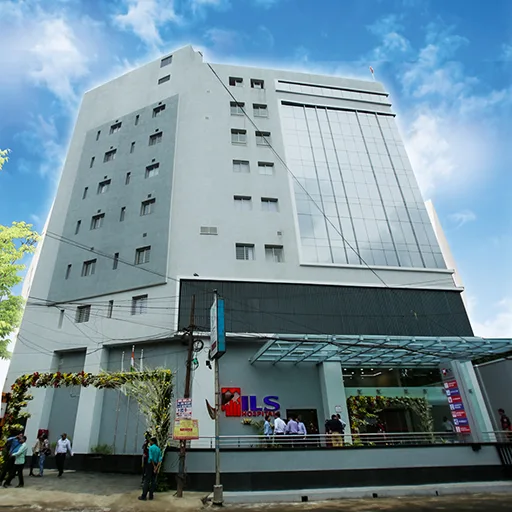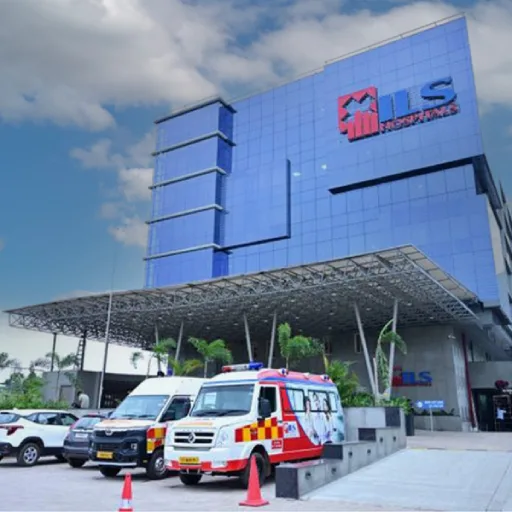Anaesthesia at ILS Hospitals: Ensuring Comfort, Safety, and Pain-Free Surgical Experiences
Anaesthesia is a crucial component of the surgical process, designed to prevent pain and induce numbness at the surgical site. ILS Hospitals employs various methods to administer anaesthesia, tailored to the specific needs of each procedure. These methods encompass inhalation, topical applications, injections, skin patches, drops, and more.
Who Administers Anaesthesia?
Anaesthesiologists, specialists dedicated to administering anaesthesia and overseeing patient well-being during surgery, play a pivotal role in ensuring a smooth and pain-free surgical experience. While anaesthesiologists are the primary experts, other licensed medical professionals, such as dentists, nurses, surgeons, and general physicians, may also administer anaesthesia.
Types of Anaesthesia:
Local Anaesthesia:
- Administered for small, localized procedures like cataract surgery or dental interventions.
- Keeps the patient awake during the procedure, with the effect wearing off within 3-4 hour
Regional Anaesthesia:
- Numbs a larger portion of the body, such as a limb or the area below the chest.
- Patients may choose to stay awake or undergo sedation in addition to regional anaesthesia.
- Examples include epidurals for childbirth and spinal anaesthesia for specific surgeries.
General Anaesthesia:
- Induces absolute unconsciousness, rendering the patient insensitive to pain.
- Employed for highly invasive procedures involving the brain, heart, or abdomen.
Sedation:
- Induces a relaxed state or sleep, with easy arousal after the procedure.
- Ranges from light to deep sedation, with deeper sedation administered by anaesthesia professionals.
- Used in procedures like cardiac catheterization and colonoscopies.
Symptoms of Anaesthesia:
Anesthetized areas exhibit specific symptoms indicating the effectiveness of anaesthesia, including a sensation of heaviness, swelling, loss of pain sensation, and difficulty swallowing in oral or mouth anaesthesia.
When to Consult an Anaesthesiologist and Their Role:
Anaesthesiologists perform crucial roles throughout the surgical journey:
Pre-Surgery:
- Conduct comprehensive medical history discussions.
- Determine the type of anaesthesia suitable for the case.
- Discuss associated risks and complications.
- Obtain consent for the chosen aesthetic and pain control methods.
During Surgery:
- Administer a single or combination of anaesthetics.
- Monitor vital signs like blood pressure, pulse, blood oxygen levels, and heart rate.
- Identify and manage any emergent issues during the procedure.
- Provide post-surgical pain management.
Postoperative Care:
- Address potential complications like anaesthesia awareness, collapsed lung, malignant hyperthermia, nerve damage, and postoperative delirium.
- Assess patients for side effects and offer post-anaesthesia recovery support.
Recovering from Anaesthesia:
The duration of anaesthesia effects varies, with local anaesthesia wearing off in 3-4 hours and regional or general anaesthesia lasting over 24 hours. Patients are advised to refrain from driving or engaging in strenuous activities until the effects subside.
Why Anaesthesiologists are Essential:
Anaesthesiologists ensure patients undergo surgery safely and comfortably without experiencing pain. Their specialized techniques, including controlled blood pressure management, contribute to safer surgeries, reduced bleeding, and improved overall outcomes. Proper pain management post-surgery aids in physical therapy, enhances recovery, and minimizes postoperative complications.
At ILS Hospitals, our dedicated team of anaesthesiologists is committed to providing comprehensive care, ensuring a pain-free and secure surgical experience for every patient.




























